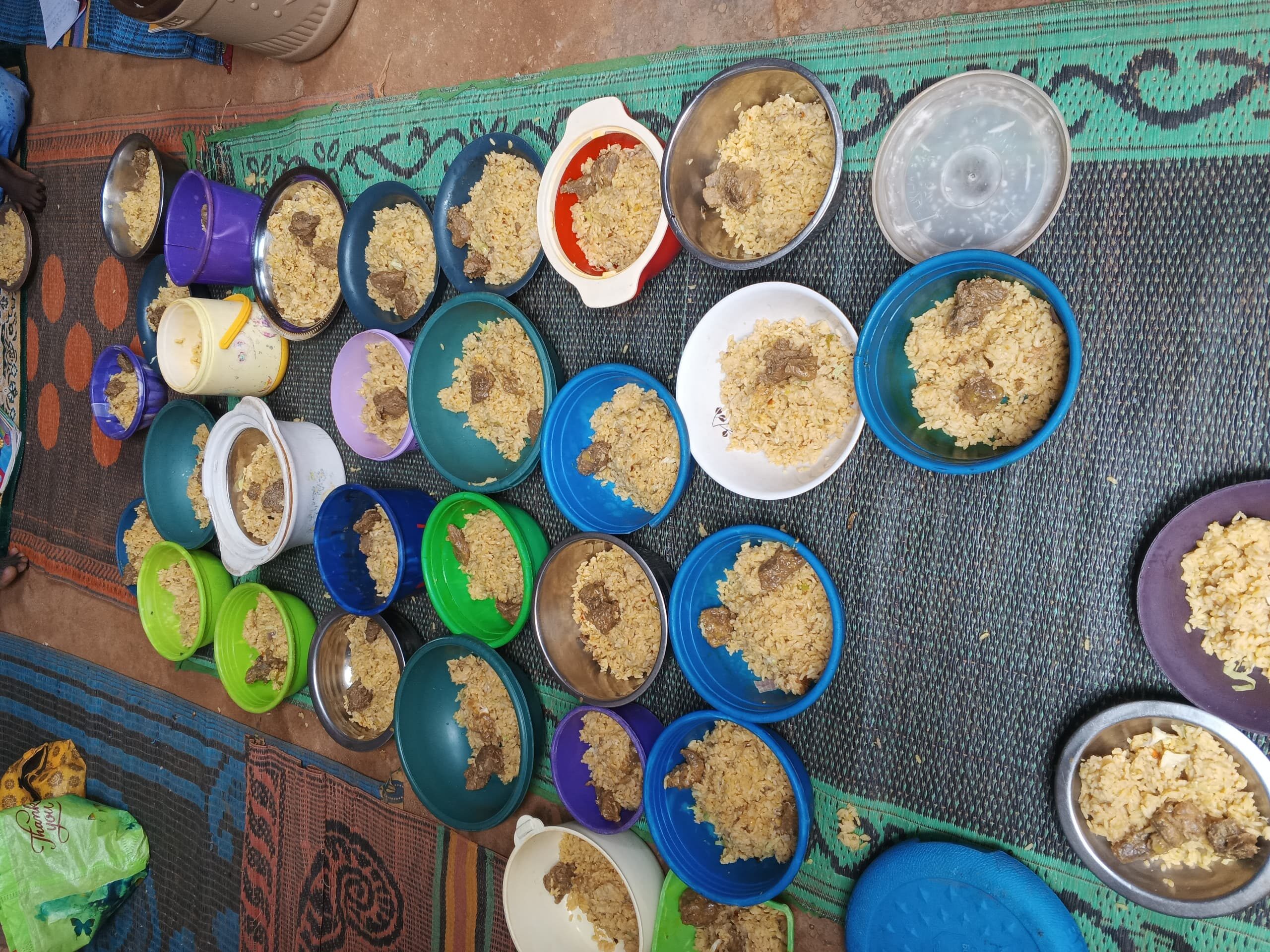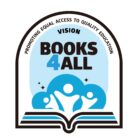From Hunger to Hope: The Role of Nutrition in Almajiri Education

Article written by

Anas Abubakar
CoFounder/President,
Vision Books4All Education Initiative
Introduction
In the struggle to ensure quality education for all, the significance of addressing basic needs, such as food security for children, cannot be overlooked. We have made remarkable strides in striving to support Sustainable Development Goal 4 (Quality Education) by focusing on the Almajiri children in Nigeria. One of the key strategies we employed is the integration of nutrition into their educational programs. By providing food for the Almajiri children, we not only address their immediate hunger, but also create a powerful incentive for attendance and learning. This article explores how Vision Books4All’s nutrition initiative has become a cornerstone of the efforts to educate Almajiri children and call for broader support to integrate similar initiatives into national educational frameworks targetting out-of-scholl children.
The Role of Nutrition in Motivating School Attendance
For many Almajiri children, daily life is a struggle for survival. Away from their families and relying on meager donations, these children face constant food insecurity. This lack of a stable food source affects their physical health but also diminishes their ability to focus on education (both Islamic and formal). we recognized this challenge early on and developed a program that integrates weekly feeding into our literacy classes. This approach serves a dual purpose: it addresses the immediate nutritional needs of the children and as well acts as a powerful motivator for classroom attendance.
The provision of regular, nutritious meals has had a profound impact on the lives of Almajiri Children. For them, the certainty of a meal is a compelling reason to attend classes, reducing absenteeism significantly. The meals provided are carefully planned to meet the dietary needs of growing children, ensuring they receive essential nutrients that might otherwise be lacking in their diet. This enhances their physical health and improves their cognitive abilities, making them more receptive to learning.
Creating a Sense of Food Security and Community
Beyond the immediate benefits of alleviating hunger, the nutrition program creates a sense of food security for our Almajiri students. Knowing that they will receive a meal when we have classes with them helps reduce the stress and anxiety associated with food scarcity. This security allows them to focus more on their studies, as they are not preoccupied with the worry of where their next meal will come from.
Moreover, the program fosters a sense of community and care. For children who often feel marginalized and overlooked, the provision of food serves as a tangible expression of concern for their well-being. This gesture of kindness and support has significantly boosted their self-esteem and sense of belonging. In an environment where they may otherwise feel isolated, the classroom becomes a safe and nurturing space, further encouraging regular attendance and active participation.
Enhancing Learning Outcomes Through Nutrition
The correlation between nutrition and academic performance is well-documented. Adequate nutrition is essential for cognitive function, concentration, and overall academic success. For the Almajiri children, who are often subject to the dual burdens of poverty and malnutrition, the meals Vision Books4All provide are not just a necessity but a catalyst for learning.
By ensuring that the children are well-nourished, our program helps enhance their cognitive abilities, making it easier for them to grasp new concepts and retain information. This is particularly crucial for children who may have had little to no previous exposure to formal education. The nutritious meals contribute to better attendance and attentiveness in class, leading to improved academic performance. This holistic approach educates the children and equips them with the tools they need to break the cycle of poverty. With Literacy comes the curiosity and ability to seek proper education, we believe that our Literacy program is a starting point for their future successess.
Integrating Almajiri Tsangayas into the Formal Education System
The Almajiri Tsangayas, traditional Islamic schools, have long been a part of Nigeria’s educational landscape especially in northern Nigeria. However, the system has faced criticism for its lack of formal educational structure and the associated challenges, such as child begging and inadequate living conditions. While some have called for the outright banning of the Almajiri system, this approach has not resulted in effective legislation or policies. The insistence on banning the system overlooks the cultural and religious significance of these schools and has not succeeded in providing a viable alternative for the children involved. With no record of any successful attempt to banning the practice even in isolated communities.
Integrating Almajiri Tsangayas into the formal education system presents a more pragmatic and inclusive solution. This integration could involve:
Curriculum Enhancement: Introducing subjects such as mathematics, science, and language arts alongside religious studies to provide a well-rounded education. This dual approach respects the cultural and religious teachings while equipping children with essential skills for modern life.
Teacher Training: Providing training for Malams/Alaranmas (teachers) in both religious and formal education methodologies. This would help in delivering a balanced education and meeting the diverse learning needs of the students.
Infrastructure Development: Improving the infrastructure of Tsangayas to create a conducive learning environment. This includes building classrooms, providing teaching materials, and ensuring access to clean water and sanitation.
Monitoring and Accountability: Establishing a system to monitor the quality of education and the welfare of students in integrated schools. This would involve regular inspections and assessments to ensure standards are met.
- Certification and intergration into the formal education stream: Making the provision for certification of the graduates of the intergrated schools that will allow them to register and enroll into more advanced levels of education.
Integrating the Almajiri system into the formal education framework offers a way to preserve cultural heritage while ensuring that children receive the education necessary to thrive in today’s world. It acknowledges the limitations of the current system without dismissing its cultural significance, and it provides a pathway for meaningful reform.
Call to Action: Integrating Nutrition and Education
The success of Vision Books4All’s approach underscores the critical importance of integrating nutrition into educational programs, especially for marginalized groups like the Almajiri children. However, the scope of the challenge requires a concerted effort from all stakeholders, including government bodies, non-governmental organizations, and community leaders.
Government Involvement: It is imperative for government agencies to recognize the importance of nutrition in education and to incorporate feeding programs into the national educational framework, learning from the failures and successess of the school feeding program. This can be achieved through policies that allocate funding for school meals, particularly in vulnerable groups and communities. Additionally, partnerships with local and international organizations can help provide the necessary resources and expertise to implement these programs effectively.
Non-Governmental Organizations (NGOs): NGOs play a crucial role in filling the gaps left by government programs. Organizations like Vision Books4All can serve as models for other NGOs looking to make a tangible impact on education. By focusing on both nutrition and education, NGOs can create comprehensive programs that address the holistic needs of children. Collaboration between NGOs can also lead to more efficient use of resources and wider reach.
Community Engagement: The involvement of local communities, including religious and traditional leaders, is vital for the success of such initiatives. Community support can help in identifying the most vulnerable children and ensuring that they have access to these programs. Moreover, community involvement fosters a sense of ownership and accountability, which is crucial for the sustainability of the programs.
Conclusion
Vision Books4All has demonstrated that the simple act of providing a meal can have far-reaching implications for the education and well-being of Almajiri children. Our innovative approach, which marries nutrition with literacy, has not only improved attendance and academic performance but also created a nurturing environment where children can thrive. However, the challenge of educating Almajiri children and ensuring their well-being is far from over.
It is a challenge that requires a unified effort from all sectors of society. We call on government bodies to prioritize nutrition in educational policies, NGOs to collaborate and expand their reach, and communities to actively participate in these initiatives. Together, we can create a future where every child, regardless of their background, has the opportunity to learn, grow, and achieve their full potential. The time to act is now; the future of countless children depends on it.
